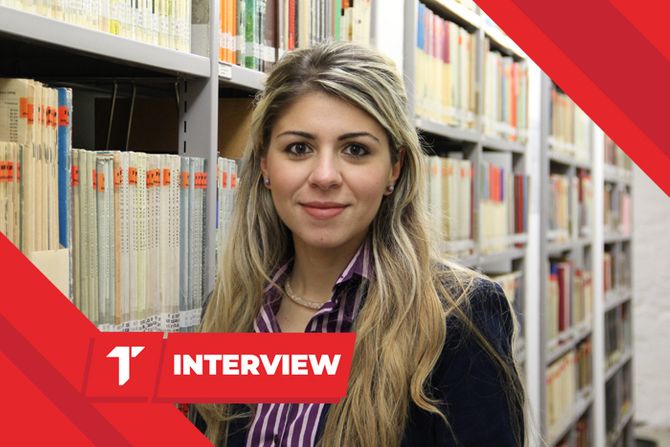
Is the world facing a Second Cold War and do we know what Putin wants with Ukraine?
Europe faces the most dangerous moment ever since the Cold War. World fears an escalation on the eastern European borders, as Russian troops are encircling Ukraine from three sides.
World leaders have been, for the past few weeks, trying to find a diplomatic solution for tensions between Russia and Ukraine, but now that many countries are urging or advising their citizens to get the first plane and leave Ukraine, people fear that "this is it,", and that we are facing a new war, in Europe, which for many is unimaginable.
Even though Moscow keeps repeating it has no intentions to invade, more than 100.000 troops on the doorstep of Ukraine sends a different message. The response from the West brings more fear. USA and NATO remain firm in their attitude, and are also reorganizing their troops in east European countries.
Our interlocutor, Dr. Eleni Christodoulou, an Adjunct Lecturer at the Department of Social and Political Science at the University of Cyprus, who researches and teaches Global Security, gives us her insights on the recent crisis.
She says that it is hard to predict whether the invasion will actually happen (and reminds us how political scientists have historically been better at analyses rather than predictions given how they failed to predict the end of the Cold war), but says that, no matter the outcome, the world is probably facing a new Cold War.
- For months we have been hearing about tensions on Ukrainian borders, but the past few weeks have been really intensive in attempts to resolve matters diplomatically. Yet it seems that a diplomatic solution is farther than ever. How much longer do you think world leaders can afford to have a "chess play" in such a serious matter?
Well, the short answer is as much as these (male) world leaders want it to last. How long did the original Cold War last – 45 years? My longer, and more serious answer, is that this depends on the world leaders themselves: how deeply embedded their perceptions of insecurity are, how willing they are to get a more nuanced perspective of what is at stake if they continue their power games, and to what extent they have the ability to use soft power and exhaust all diplomatic forms before resorting to further military build up and violence.
- What, in your opinion, is wrong with the current way leaders are trying to solve this?
The logical thing to do would be to exhaust all diplomatic means and only then consider resorting to direct and indirect threats, ultimatums and fear-inducing showcasing of military power, that is currently going on. However, in this case, they’ve done it the other way around. Ultimatums first, sudden increases of military power second and superficial snippets of some last minute diplomatic attempts by France come third (which seem to be anyway more for political gains rather than because Macron has what it takes to act as an effective mediator, both politically and diplomatically).
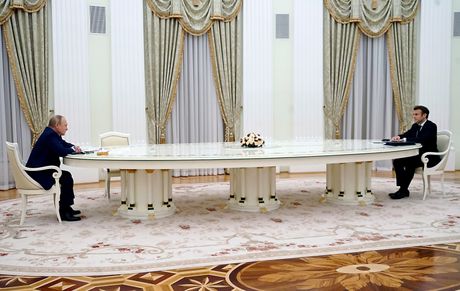
For me, at the core of these heightened tensions lie two things: insecurities and desire to control, and one feeds off the other. Russia is trying to ‘control’ Ukraine, as if sovereignty and borders are jewellery to be worn and removed depending on the occasion. This form of neocolonialism is not just rooted in the past but also is a tactic of protection and validation – a survival tactic that Russia is using to address her real or perceived insecurities.
- You mentioned male leaders, do you think that the situation would be any different if there were women included in these diplomatic talks?
Yes, definitely. Not only would the situation fare better, but it is highly likely that we may not have reached close to this point of no return. Politics, both as a discipline of study and as a profession is dominated by men, and while men led both World Wars, it was women who were so active in the peace movements and only in recent years that their role has started to be acknowledged in history textbooks. How many female country leaders do you see in the news regarding the Ukraine-Russia dispute? How many political analysts do you see or read about that are women? (thanks for the invitation by the way- your newspaper is an exception!).
My point is that more than two decades have passed since the UN Security Council resolution 1325 highlighted how crucial it is to bring women in the table when it comes to issues of national peace and security, their important role in peace negotiations, prevention and resolution of conflicts, and their full involvement in efforts to maintain global peace and security.
Yet, rather than a step forward and a political #metoo, we see a #meneither because none of us can see women being included. So my question is, where are the women? We see, day after day a bunch of men, playing the ‘blaming game’, putting at risk hundreds of thousands of human lives (not to mention those they will leave behind or the quality of life of war survivors), using aggressive, violent communication that just adds oil to the fire. Just like during the first Cold War, most people are more concerned whether and when it will turn hot rather than thinking constructively and creatively about how it may be prevented, addressing the root causes and getting their ‘egos’ on the table. I mentioned Russia before. It’s not like the US or the EU is faring better. The “West” arguably failed to predict the end of the Cold War precisely because they failed to deeply understand Russia or arrogantly thought they had figured the Soviets out.
- So you may say history keeps repeating itself?
Not exactly, but they prefer to depict Putin as an unpredictable, Machiavellian bully – and although the past few years have painted an even uglier picture of him than his previous years in office – merely doing so builds walls, and armies – it doesn’t build bridges.
So although we often see a picture painted of the “West” merely reacting to Russia’s aggressive military build-up, we ought to, I believe, also look at whether NATO also has responsibility in deepening geopolitical divisions that lead to instability rather than stability. How is NATO trying to ‘control’ and ‘secure’ alliances and territory? What is the point of international organisations if they are to bring security and stability to only one region of the world? What is the legitimacy of NATO in a world where borders are porous, problems are global, and our understandings of security have long shifted (at least since the end of the 90s with the well-known Human Development Report of 1994) from security of territories to security of humans? Are we going back now to pre 1994 times, completely forgetting the human-centred understandings of security? And if a new Cold War is truly developing, are we not realising that we aren’t talking about an ‘iron curtain’ but a ‘digital’ one – with all the greater speed, risks and dangers this entails?
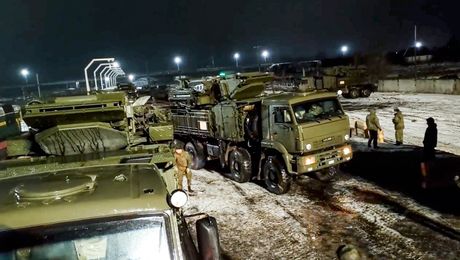
One also ought to avoid presenting Ukraine with the simplistic label of a victim. It does not exactly pride itself in being the most democratic state, and nor has it done what it could have done to provide the citizens of the predominantly Russian-speaking eastern Ukrainian territories with the autonomy negotiated under the Minsk Protocols (2014 and 2015). I am not trying to present Putin as an angel here, but always treating Russia as the pariah, outsider state means it will most likely try to validate itself through other means – and this recent tension is one of them. One also need to keep in the recent historical context, how did Ukraine become independent? What was Russia’s role and influence historically?
- Biden's administration was, we can say, doing a "megaphone" strategy, and was very public about the Russian threat to Ukraine, even though not every of piece of their intelligence proved to be right. Is their call for the USA citizens to leave Ukraine just another diplomatic bluff, or do you think they finally figured out Putin's next move, in this case invasion?
I can’t say for sure if their call for USA citizens to leave Ukraine is just another fearmongering strategy, but I certainly don’t believe they have figured out Putin’s next move. I don’t think they properly understand Russia’s way of thinking and behaving. This goes for all leaders but let’s not forget that the old cliché is still valid today: when domestic financial, health and political issues are endangering the popularity and legitimacy of the government, the shift falls on to foreign policy to distract the people and unite them against an external ‘Other’ threat.
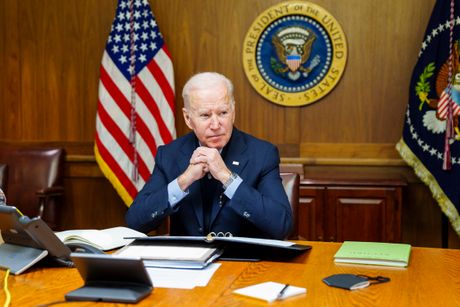
The pandemic has exhausted people, physically, financially and psychologically and has led to deep societal polarisations. The rise in energy prices, now exacerbated by the heightened tensions and the negative predictions for the future of Nord Stream 2, corruption scandals and the deep mistrust in political institutions are not easy to resolve directly. Biden’s popularity has been falling and so has of other key NATO players.
Moreover, the presence of soldiers does not necessarily mean this will lead to war. Take Cyprus, the Turkish soldiers have been occupying the northern part of the island since 1974 and although the fear of war has become a daily reality, we have had an absence of war (what we call negative peace) since then.
- Than what do you think will happen in Ukraine? Some believe Putin is showing power, so he can get the attention from the West, and force them to deal with Russia's security concerns. What do you say?
I prefer, as I mentioned earlier, to stay away from predictions, but I do want to highlight that inducing panic into the world doesn’t help. A large-scale military operation and a full-scale use of hard power is not something that currently fits the rational choices of Moscow.
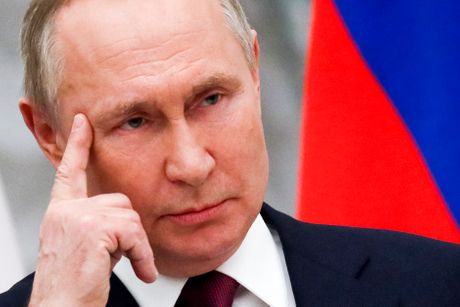
We should remember that it is not Putin who is threatening to intervene but rather Western leaders, and media that are presenting this as happening at any moment (with some even spreading fake news). If we are to judge by the previous behaviour of Russia, its geopolitical strategies in Libya, Georgia etc. show that it both lacks the desire and the means to maintain a full-blown large scale war of international proportions.
- World hopes there won't be bloodshed. But is it possible to evade a second Cold war even if a diplomatic solution is found?
In political science we have several theories to try and make sense of the world. During the Cold War, the Realist theory was at a peak – this is the rather gloomy way of seeing the world in a state of anarchy, primarily made up of states (ignoring citizens’ power, non-state actors etc.) and these states as being inevitably insecure, always self-centred, selfishly addressing their interests and being engaged in an inevitable arms race as one alliance would try to compete with the other over power. Yet this Realist theory failed to predict the end of the Cold war as we discussed earlier – something which took place not because of military means but because of other internal and external factors not least the power of democratic ideology.
The end of the Cold War gave a resurgence to the Liberalists who emphasise that it is possible for states to cooperate for international peace, not least because we live in a world where no state is an island but strong interdependencies and influences remain – so it is to their interest to cooperate.
Although I would say we are seeing for the first time a second Cold War beginning to unravel before our eyes, and a resurgence of the Realist theory (alliances, military build-up, use of hard power etc.), I personally believe it is definitely possible to prevent this Second Cold War from unravelling further. If Macron is right and Russia just wants “to clarify the rules of cohabitation with NATO and the E.U.”, then public inflammatory speeches should be replaced by quiet diplomacy.
Let’s also not forget the power of the people, the power of citizens who are in their vast majority not willing to go to war over Ukraine’s potential accession into NATO. The Arab Spring and a myriad of people led social movements has shown that even if Realism resurfaces, it will never get its way like it did before. Let’s also not forget how the insecurity or security that Russia feels, the way it sees itself vis-à-vis NATO and vice versa, is an ideational construct and not something fixed. Therefore, just as it was constructed, it can be deconstructed. It’s not easy but it’s not impossible either. The world is not a two man’s show. Just like the Security Council needs to stop acting like a 5-man show and take such crises as an opportunity to reform so that the UN can truly meet the purpose that it was created to fulfil: to maintain international peace and security and prevent a Third World War.
- Hot atmosphere made it more or less clear who was on which side in this matter. What consequences this may have, in your opinion, on global peace?
I actually believe, following from what I said above that Russia is not aiming at attacking Ukraine, or getting involved into a third world war. It is acting like the child of the family that is never being listened to and it is demanding its place in the agenda-setting table for global security. And by the looks of it, it has succeeded in getting the world’s attention – with a big helping hand from the “West”.
(Telegraf.rs)
Video: Unuk ranio babu i dedu, pa pucao u sebe u dvorištu na Zvezdari
Telegraf.rs zadržava sva prava nad sadržajem. Za preuzimanje sadržaja pogledajte uputstva na stranici Uslovi korišćenja.

